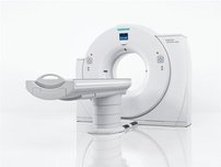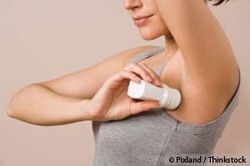
After decades of qualms about lung cancer screening, the American Cancer Society says there now is enough evidence to recommend it, but only for current and former heavy smokers ages 55 to 74 and after a frank talk about risks and benefits with your physician. The new guidelines, announced Friday, are a cautious but exciting step against the world's most deadly cancer.
The study only included older people who smoked a pack of cigarettes a day for 30 years or the equivalent, such as two packs a day for 15 years. Whether screening would help others isn't known, so scans were not advised for them.
Lung cancer is fairly rare before age 55, so the benefits of screening are going to be less if you start at a younger age. Cancer screening has provoked great argument in recent years; especially over when and how often women should get mammograms and whether men should have PSA blood tests to look for prostate cancer.Some of the most influential guidelines come from a government-appointed panel— the U.S. Preventive Services — but it hasn't considered lung cancer screening since 2004, when it said there wasn't enough evidence to recommend for or against it. An update is in the works now. The Cancer Society used to recommend screening with chest X-rays but withdrew that advice in 1980 after studies showed they weren't saving lives Since then, the CT scans have come into wider use, and several medical groups have backed screening with them.
From The Detroit News: http://www.detroitnews.com/article/20130111/LIFESTYLE03/301110417#ixzz2HmDVo8nr
The study only included older people who smoked a pack of cigarettes a day for 30 years or the equivalent, such as two packs a day for 15 years. Whether screening would help others isn't known, so scans were not advised for them.
Lung cancer is fairly rare before age 55, so the benefits of screening are going to be less if you start at a younger age. Cancer screening has provoked great argument in recent years; especially over when and how often women should get mammograms and whether men should have PSA blood tests to look for prostate cancer.Some of the most influential guidelines come from a government-appointed panel— the U.S. Preventive Services — but it hasn't considered lung cancer screening since 2004, when it said there wasn't enough evidence to recommend for or against it. An update is in the works now. The Cancer Society used to recommend screening with chest X-rays but withdrew that advice in 1980 after studies showed they weren't saving lives Since then, the CT scans have come into wider use, and several medical groups have backed screening with them.
From The Detroit News: http://www.detroitnews.com/article/20130111/LIFESTYLE03/301110417#ixzz2HmDVo8nr
Antiperspirants increasing your risk of breast cancer.

Parabens found in cancerous human breast tissue points the finger at antiperspirants and other cosmetics for increasing your risk of breast cancer. The research, which is also reviewed in an editorial published in the Journal of Applied Toxicology, looked at where breast tumours were appearing, and determined that higher concentrations of parabens were found in the upper quadrants of the breast and auxiliary area, where antiperspirants are usually applied. Parabens are chemicals that serve as preservatives in antiperspirants and many cosmetics. Another component of antiperspirants, aluminium chloride, has been found to act similarly to the way oncogenes work to provide molecular transformations in cancer cells. The research shows signals of concern that such compounds are not as safe as previously generally considered, and further research is warranted. The study discovered one or more paraben esters in 99 percent of the 160 tissue samples collected from 40 mastectomies. In 60 percent of the samples, all five paraben esters were present.
http://articles.mercola.com/sites/articles/archive/2012/05/24/parabens-on-risk-of-breast-cancer.aspx?np=true
http://articles.mercola.com/sites/articles/archive/2012/05/24/parabens-on-risk-of-breast-cancer.aspx?np=true
 RSS Feed
RSS Feed